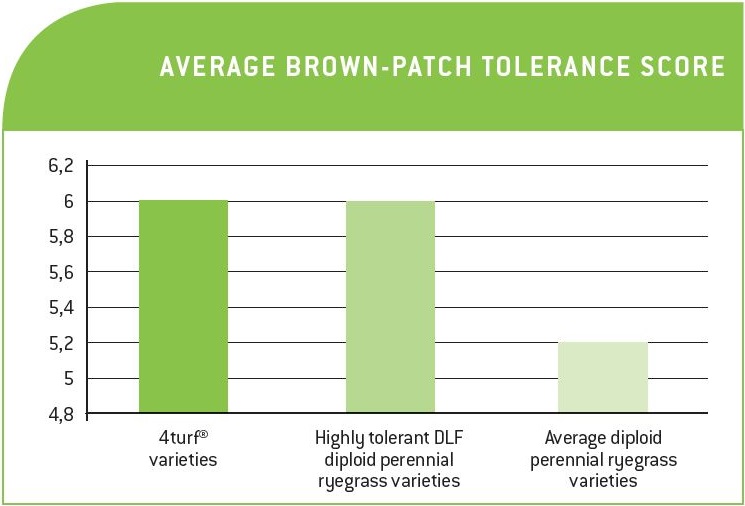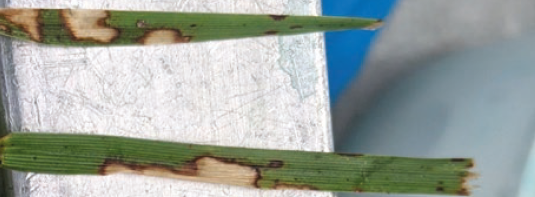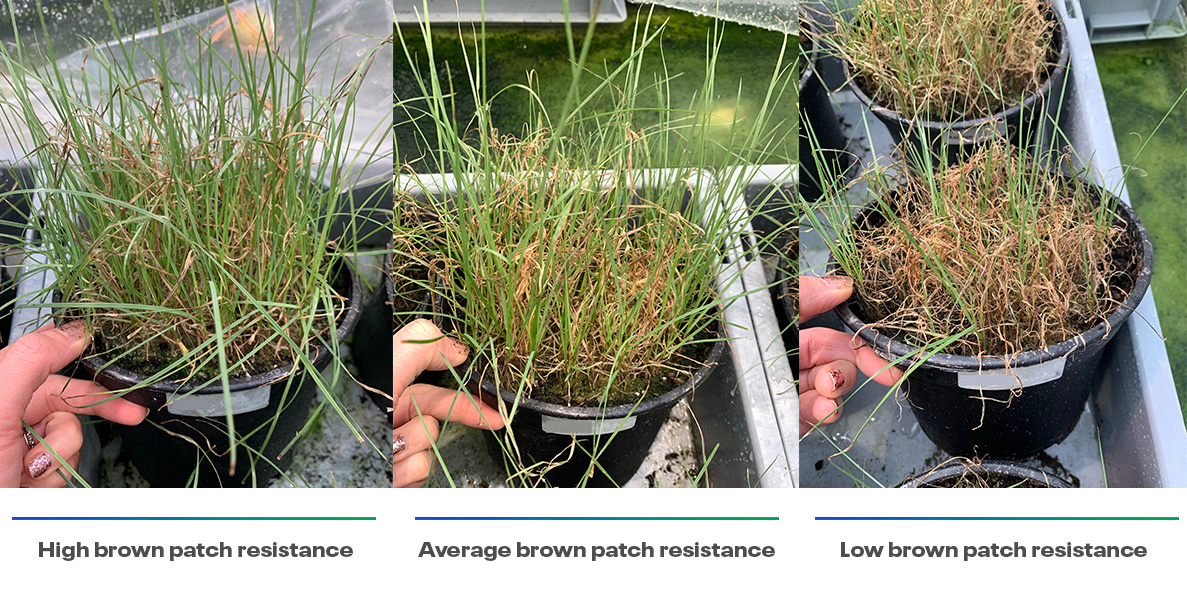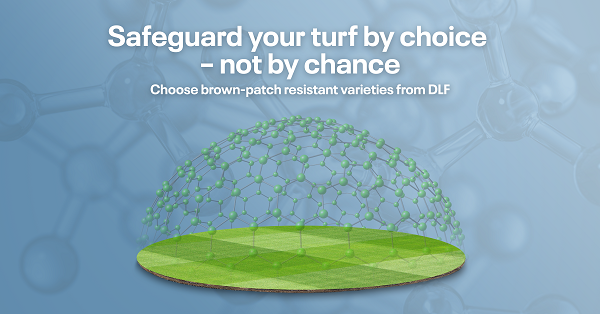- Species & varieties
- Mixtures and brands
- Turf for tough conditions
- Turf by use and activity
- Turf management
- Brown patch resistant turf
- 4turf - turf tetraploid perennial ryegrass
- 4salt - enhanced salt tolerance
- ProNitro - Ready to grow
- Accelerator seed coating
- DLF Select - high purity seeds
- Microclover - green and lush
- DLF Academy
- Turf references
- Roots
As climate change brings more hot and humid weather, the severity and geographic range of fungal diseases are increasing. Disease control has become a greater challenge for many turf managers as they seek to reduce pesticide use. 4turf® tetraploid perennial ryegrass varieties have proven to be highly resistant to brown patch, as have several other outstanding diploid varieties from DLF. The use of 4turf®, and certain diploid varieties gives you a better brown patch resistance. Choosing varieties with high brown-patch resistance reduces your reliance on fungicides, and gives you a better pitch quality, more playing hours and increased peace of mind.
Brown patch is becoming more common in high-end stadiums and training grounds across Northern Europe. The disease can potentially lead to the loss of an entire pitch if it attacks young seedlings during establishment or renovation. During hot, moist summers brown patch can also occur at a later stage of growth where it causes severe damage and dramatic reductions in pitch quality.
The results of the screening show significant differences in levels of brown-patch resistance between perennial ryegrass varieties. 4turf® varieties are significantly more resistant to brown patch than most diploid perennial ryegrass but we have also identified specific diploid perennial ryegrass varieties with high resistance.

What is brown patch?
Brown patch is a turfgrass foliar disease caused by Rhizoctonia spp. The fungus can attack all cool-season turfgrasses, but is most devastating to perennial ryegrass, bentgrass and tall fescue. Attacks are triggered by hot, humid conditions, especially if the grass has been over-stimulated with nitrogen fertiliser.

Unique brown patch screening method
DLF has developed a unique greenhouse screening method to identify the most brown-patch-resistant perennial ryegrass varieties. Screening takes place at DLF Beet seed facility that specialises in Rhizoctonia. The scientists test varieties against a highly virulent fungal isolate from a European football pitch that suffered severe brown-patch attacks.


